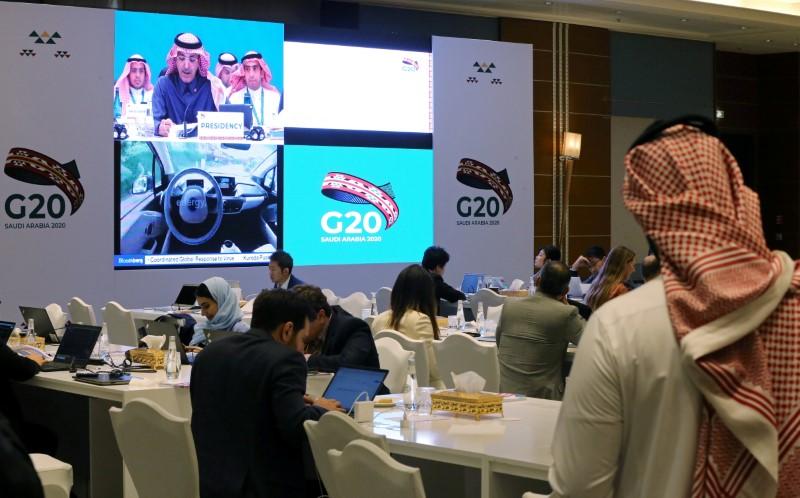Global solidarity essential to pandemic recovery
https://arab.news/rm9qv

This year, the UN is celebrating its 75th anniversary. Born out of the horrors of the Second World War, the UN, as a common endeavor for humanity, was established to save succeeding generations from the scourge of war, to promote and protect human rights, and advance progress and development across the world. Throughout its history, the UN has saved millions of lives through humanitarian action, promoted freedom, shaped a rules-based international system, set up norms for international development, and actively worked to provide children with the education they deserve. Our common organization is indispensable in times of great disruption in the world and when international cooperation is much needed.
The international community is once again facing a human tragedy; a threat that jeopardizes decades of progress and development. The coronavirus disease (COVID-19) pandemic is an unprecedented global health crisis with severe economic and social impacts, the worst crisis since the Second World War, and at a time when multilateralism has been challenged by more national-centered approaches. Will we emerge stronger and better equipped to work together? Or will distrust and isolation grow further?
Since March, the COVID-19 pandemic has taken a heavy toll on our lives, and it continues to wreak havoc around the world. More than 1 million people have died and 40 million have been reported infected. The real numbers are likely higher and will continue to increase. The economic and social consequences are dire: Negative growth is expected in 172 countries in 2020, extreme poverty is set to increase by 88 to 115 million people, and job losses are expected to affect about 435 million people. The global growth contraction is compounded by a drop of 40 percent in foreign direct investment and up to 20 percent in trade. All these numbers only highlight the severity of a protracted crisis that will spare no country from its devastating impacts and will require a common determination to recover from. Health and socioeconomic impacts are intertwined. The pandemic is not over until it is over, and there will be no economic recovery or rebound without addressing and controlling the virus.
The World Health Organization is playing a key role in guiding a large-scale, coordinated and comprehensive health response, including a new global collaboration — the Access to COVID-19 Tools Accelerator — to speed up development, production and equitable access to COVID-19 tests, treatments and vaccines. All UN agencies are working together to safeguard the lives and livelihoods of the most vulnerable through a wide-ranging effort to address the devastating socioeconomic, humanitarian and human rights aspects of the crisis.
Cooperation and partnerships among all stakeholders are more crucial than ever. That is why, along with the UN secretary-general, we commend Saudi Arabia’s leadership as the chair of the G20 in 2020. As the premier forum for international economic cooperation, the G20 brings together the most powerful countries and can take collective actions. At the outset of the pandemic, the Kingdom convened an extraordinary summit, where G20 leaders expressed their grave concern and “committed to do whatever it takes to overcome the pandemic.”
While facilitating the consensus-building among G20 countries on several critical issues — such as the coordination of fiscal stimuli, mobilization of resources to address the immediate financing needs in global health, and debt relief for the poorest countries to help them overcome the socioeconomic impact of the COVID-19 crisis — the Saudi G20 Presidency should spare no efforts to keep leading the global health emergency response and the worldwide economic recovery. The upcoming Riyadh summit of the G20 leaders is being held at a critical juncture and provides a unique opportunity to keep advancing toward an inclusive and sustainable future for all.
The UN and G20 working together is not only a moral imperative but also a practical necessity in an interconnected world.
Nathalie Fustier
The stakes are high and global solidarity is not only a moral imperative but also a practical necessity in an interconnected world. The UN and the G20 must strengthen their partnership, reaffirm the common understanding of a more sustainable and inclusive recovery, and re-establish momentum toward achieving the 2030 Agenda for Sustainable Development, which remains the blueprint for building back better. It calls for nothing less than tackling the pandemic, promoting growth, advancing toward sustainable development for all, eradicating poverty, addressing the climate crisis and our environment depletion, cooperating for peace, and shoring up the many other pre-existing fragilities laid bare by the crisis.
The UN in Saudi Arabia is committed to contributing to this effort and to promoting dialogue where we can discuss our priorities as a human family and explore how to build a better future for all.
On the occasion of UN Day — Saturday, Oct. 24 — we are convening a virtual conference under the theme “Recovering from the COVID-19 Crisis and Advancing Towards Sustainable Development in Saudi Arabia: Building on the UN-G20 Partnership,” with the participation of distinguished speakers and panelists from Saudi Arabia and abroad, the G20, and the UN community. In addition to exploring the Kingdom’s pandemic response efforts, participants will share best practices and knowledge on how to mobilize finance for sustainable development and promote health and human capital.
Join us at saudiarabia.un.org to celebrate our anniversary and participate in this dialogue. A decade of action to achieve the Sustainable Development Goals by 2030 is ahead of us, and at 75 we still feel strong enough to bring everybody together and build the future we want.
- Nathalie Fustier is United Nations Resident Coordinator in Saudi Arabia. Twitter: @NathalieFustier










































